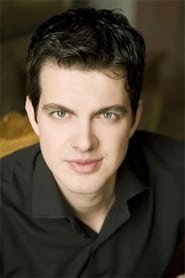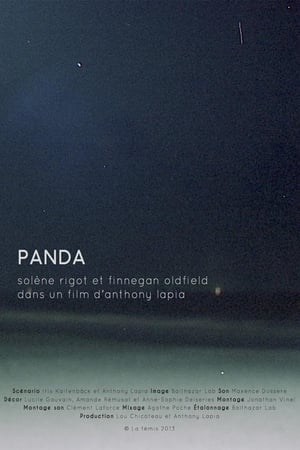
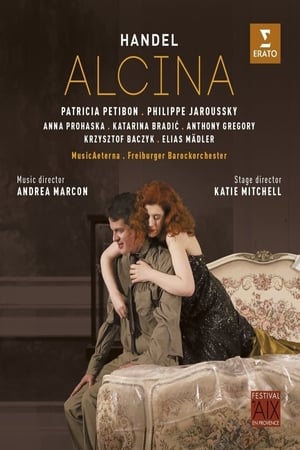
Handel: Alcina(2015)
Philippe Jaroussky as Ruggiero is in thrall to Patricia Petibon as the sorceress Alcina in Katie Mitchell’s virtuosic production of Handel’s opera from the 2015 Aix-en-Provence Festival, described by Bachtrack as “a night of a thousand delights”. Conducted by Andrea Marcon, this was, in the words of Opera News, “musically … a performance of the highest festival level”. The production of Alcina, by the British director Katie Mitchell, was welcomed by the Financial Times as “meticulously executed …, rich in detail, consummately polished”. As the New York Times wrote: “It involves a huge sorcery machine for turning people into animals (or whatever). And Ms. Mitchell works magic of her own onstage, constantly showing the enchantresses Alcina and Morgana alternating between glamorous public personas and their ‘real life’, older, private selves …There are also bits of simulated sex, mingling genders and suggesting, among other things, inventive new ways to hit high notes.”
Movie: Handel: Alcina
Top 8 Billed Cast
Alcina
Morgana
Bradamante
Oronte
Melisso
Oberto
Conductor

Handel: Alcina
HomePage
Overview
Philippe Jaroussky as Ruggiero is in thrall to Patricia Petibon as the sorceress Alcina in Katie Mitchell’s virtuosic production of Handel’s opera from the 2015 Aix-en-Provence Festival, described by Bachtrack as “a night of a thousand delights”. Conducted by Andrea Marcon, this was, in the words of Opera News, “musically … a performance of the highest festival level”. The production of Alcina, by the British director Katie Mitchell, was welcomed by the Financial Times as “meticulously executed …, rich in detail, consummately polished”. As the New York Times wrote: “It involves a huge sorcery machine for turning people into animals (or whatever). And Ms. Mitchell works magic of her own onstage, constantly showing the enchantresses Alcina and Morgana alternating between glamorous public personas and their ‘real life’, older, private selves …There are also bits of simulated sex, mingling genders and suggesting, among other things, inventive new ways to hit high notes.”
Release Date
2015-11-03
Average
7
Rating:
3.5 startsTagline
Genres
Languages:
ItalianoKeywords
Recommendations Movies
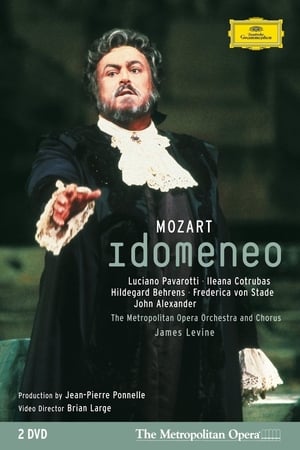 9.0
9.0Idomeneo(it)
Opera royalty Luciano Pavarotti brings dignity and power to the title role in this 1982 production. During a squall at sea, Idomeneo -- the king of Crete -- swears to Neptune that if the monarch survives, he'll sacrifice the first person he encounters onshore. Tragically, that person ends up being his son, Idamante (Frederica Von Stade). Maestro James Levine masterfully conducts the orchestra and chorus of the Metropolitan Opera. A musical production that was designed for the "Live From the Met" series, this program was produced by Jean-Pierre Ponnelle.
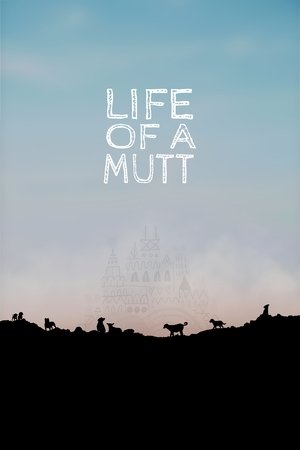 10.0
10.0Life of a Mutt(sr)
Through seven scenes, the film follows the life and destinies of stray dogs from the margins of our society, leading us to reconsider our attitude towards them. Through the seven “wandering” characters that we follow at different ages, from birth to old age, we witness their dignified struggle for survival. At the cemetery, in an abandoned factory, in an asylum, in a landfill, in places full of sorrow, our heroes search for love and togetherness. By combining documentary material, animation and acting interpretation of the thoughts of our heroes, we get to know lives between disappointment and hope, quite similar to ours.
 1.0
1.0Best of Video Track 77 & 78(en)
Highland Sunset and a final look at Class 37s on the West Highland Line to Fort William before the introduction of Class 66s. Crewe Open Weekend with a tour of Crewe Works during the open weekend of the 20th and 21st of May with a variety of traction plus coverage of specials to the event with 33 and 37 hauage. Class 58 Profile with only half of the original class still in action we take a look at the class from the 1980s to the present day. Devon Contrasts and Class 67 and 47 motive power along the famous stretch of sea wall from Starcross to Dawlish.
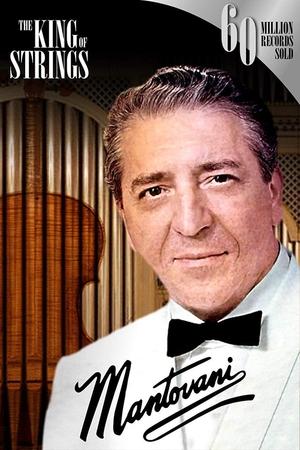 6.0
6.0Mantovani, the King of Strings(it)
Known for his unmistakable cascading strings and recordings such as Charmaine, Mantovani enthralled the world with his sublime arrangements. This is the story of the man and his music.
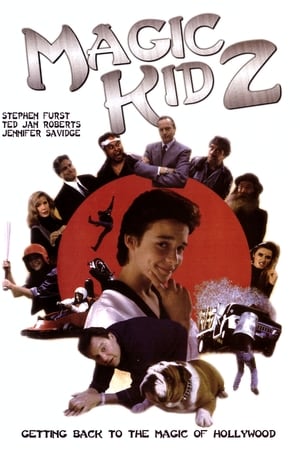 4.9
4.9Magic Kid II(en)
Kevin Ryan is Hollywood's leading teen heartthrob. He's the star of "Ninja Boy," a hot Martial Arts TV series. The trouble starts when Kevin decides he wants to leave the hit show, so that he can go to high school and lead a normal teenager's life. However, he is the Studio's biggest money maker and the unscrupulous executives are NOT going to let him leave. Their sinister plans involve a desirable young starlet, a muscle-bound mountain man, and an army of inept thugs trying to kill Kevin's loveable, but mixed-up manager, Uncle Bob.
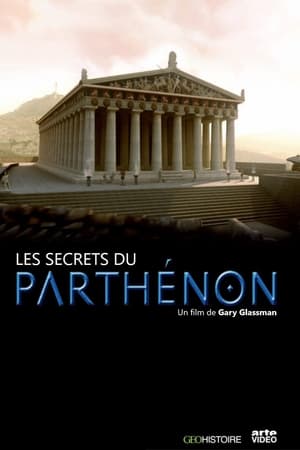 8.0
8.0Secrets of the Parthenon(en)
For 25 centuries the Parthenon has been shot at, set on fire, rocked by earthquakes, looted for its sculptures, and disfigured by catastrophic renovations. To save it from collapse, the modern restoration team must uncover the secrets of how the ancient Greeks built this icon of western civilization in less than nine years without anything resembling an architectural plan.
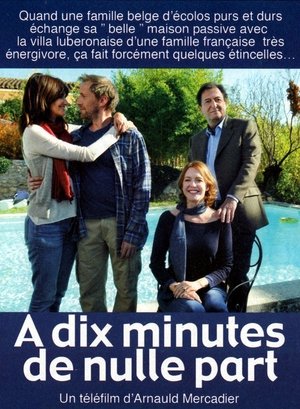 5.9
5.9À dix minutes de nulle part(fr)
The Stievenart family decides to spend their vacation far away and puts an ad on the internet. The Mailon family responds by offering to exchange homes. But the Stievenart family has an environmentally friendly house, while the Mailons consume a lot of energy.
Jirocho Fuji 2: The Chivalrous(ja)
The exciting story of Jirocho and his yakuza gang that controlled the area of the Tokaido during the latter days of the samurai era. Awesome fighting from Katsu Shintaro as One-Eyed Ishimatsu highlights this great tale taken from Japanese history!
 3.5
3.5WCW Bash at the Beach 1995(en)
Hulk Hogan defends the WCW World Heavyweight Championship against Big Van Vader in a Steel Cage Match. "The Macho Man" Randy Savage faces "The Nature Boy" Ric Flair in a Lifeguard Match. Harlem Heat, The Nasty Boys, and The Blue Bloods compete in a Triangle Match for the WCW World Tag Team Championship. Plus, "Diamond" Dallas Page, Sting, and much more.
"Best of the Best" Provides New Views, Commentary of Shuttle Launches(en)
This video from the Glenn Research Center highlights in stunning, behind-the-scenes imagery the launches of three space shuttle missions: STS-114, STS-117, and STS-124. NASA engineers provide commentary as footage from the ground and from the orbiters themselves document in detail the first phase of a mission.
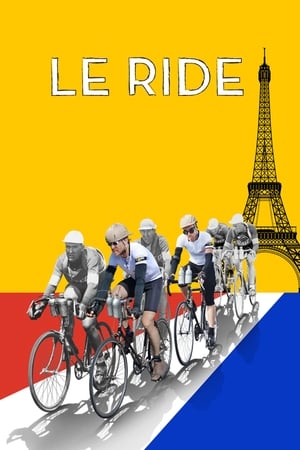 6.0
6.0Le Ride(en)
In 1928 an under-resourced and untested team from New Zealand and Australia competed in what is considered to be the toughest sporting event in the world. Many considered the entry of these courageous underdogs, racing as a team of 4 against teams of 10, a joke. One French journalist called their attempt nothing short of murder. 168 riders started the more than 3,500-mile race, only 41 finished. Surprisingly this remarkable story about the achievements of these brave athletes has never been told on film, until now. Phil Keoghan - television personality, adventurer and cycling enthusiast, retraces the 1928 Tour de France route, bringing history to life. Following the original course and schedule, riding a vintage bike, Phil and his team will average 150 miles a day for 22 stages.
 6.0
6.0Don't Panic: The Dad's Army Story(en)
Victoria Wood presents the true story behind Britain's timeless comedy. Includes footage of the cast on location and incredible personal tales about the making of the series. Was Arthur Lowe really just like Captain Mainwaring? Why did the warden always end up in the water? And how did Corporal Jones find a bomb down his trousers? Find out why Dad's Army was the Queen Mother's favourite show.
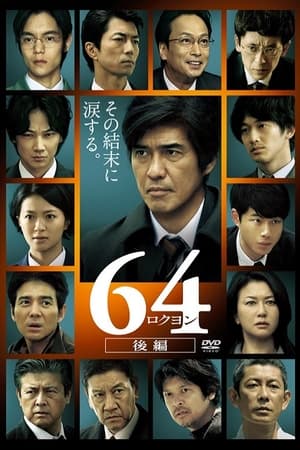 7.4
7.464: Part 2(ja)
1989: 64th and last year of the Showa era. A girl is kidnapped and killed. The unsolved case is called Case 64 ('rokuyon'). 2002: Yoshinobu Mikami, who was the detective in charge of the Case 64, moves as a Public Relations Officer in the Police Affairs Department. His relation with the reporters is conflicted and his own daughter is missing. The statute of limitations for the Case 64 will expire in one year. Then a kidnapping case, similar to the Case 64, takes place. The rift between the criminal investigation department and police administration department deepens. Mikami challenges the case as a public relations secretary.
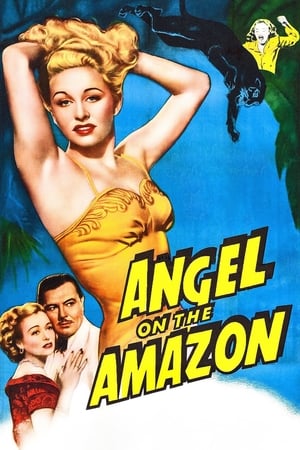 4.8
4.8Angel on the Amazon(en)
An expedition exploring the Amazon jungle comes across a jungle goddess who lives among the animals and fears none of them--and apparently has found the secret of eternal youth.
Similar Movies
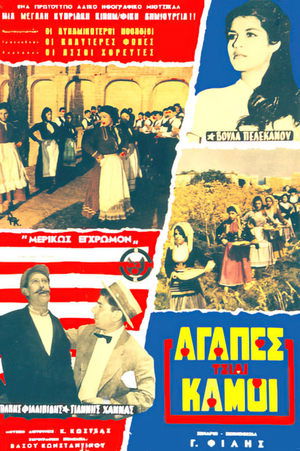 0.0
0.0Love Affairs and Heartbreaks(el)
This first film of Cyprus' first director, Giorgios Filis, depicts music and dance customs in the form and style of a folk opera, with traditional Cypriot dances and songs. The film consists of a folkloric inventory based on the folk culture of Cyprus, as well as on similar ritual happenings. The narration and dialogue are entirely in the Cypriot dialect and are characterized by a rhetorical and poetic mood.
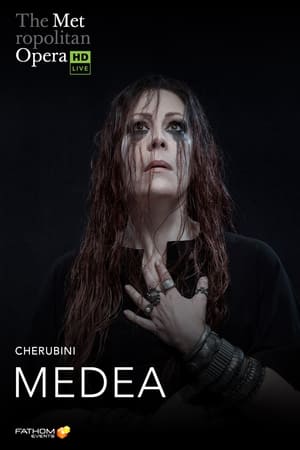 0.0
0.0The Metropolitan Opera: Medea(it)
Having triumphed at the Met in some of the repertory’s fiercest soprano roles, Sondra Radvanovsky stars as the mythic sorceress who will stop at nothing in her quest for vengeance. Joining Radvanovsky in the Met-premiere production of Cherubini’s rarely performed masterpiece is tenor Matthew Polenzani as Medea’s Argonaut husband, Giasone; soprano Janai Brugger as her rival for his love, Glauce; bass Michele Pertusi as Glauce’s father, Creonte, the King of Corinth; and mezzo-soprano Ekaterina Gubanova as Medea’s confidante, Neris. Carlo Rizzi conducts.
 6.6
6.6Farinelli(fr)
The life and career of Italian opera singer Farinelli, considered one of the greatest castrato singers of all time.
 7.1
7.1The Phantom of the Opera(en)
The deformed Phantom who haunts the Paris Opera House causes murder and mayhem in an attempt to make the woman he loves a star.
 6.0
6.0Fidelio(de)
Beethoven’s only opera is a masterpiece, an uplifting story of risk and triumph. In this new production, conducted by Antonio Pappano, Jonas Kaufmann plays the political prisoner Florestan, and Lise Davidsen his wife Leonore (disguised as ‘Fidelio’) who daringly sets out to rescue him. Set in strong counterpoint are the ingredients of domestic intrigue, determined love and the cruelty of an oppressive regime. The music is transcendent throughout and includes the famous Act I Quartet, the Prisoners’ Chorus and Florestan’s impassioned Act II cry in the darkness and vision of hope. Tobias Kratzer’s new staging brings together the dark reality of the French Revolutionary ‘Terror’ and our own time to illuminate Fidelio’s inspiring message of shared humanity.
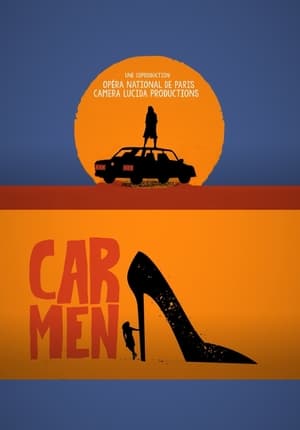 0.0
0.0Carmen - Opéra National de Paris(fr)
The first words uttered by Carmen mark one of the greatest entrances in the history of opera and express all that need be said: “Love is a rebellious bird that no one can tame…” With a devilish sway of the hips and a hint of Andalusian flair, the beautiful cigar-maker sets her sights on a soldier: Don José. Fate will do the rest.
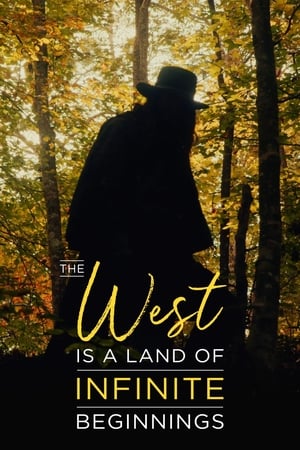 0.0
0.0The West is a Land of Infinite Beginnings(en)
Alone in the woods, a young man is pursued by a horrifying specter and by visions of his deceased sisters. A meditation on the precarious uncertainty of the American Dream and the role that uncontrollable forces play in our lives, The West is a Land of Infinite Beginnings is inspired by a harrowing scene from the opera Proving Up, by composer Missy Mazzoli and librettist Royce Vavrek.
 7.0
7.0Cavalleria rusticana(it)
Franco Zeffirelli directs these two legendary La Scala productions telling tragic tales of jealousy. Mascagni's Cavalleria Rusticana features performances by Elena Obraztsova, Plácido Domingo, and Renato Bruson. Leoncavallo's I Pagliacci stars Teresa Stratas, Plácido Domingo, and Juan Pons. Both are conducted by George Pretre. This production of Pagliacci earned director Franco Zeffirelli the coveted Emmy as Best Director in the category of Classical Music Programming.
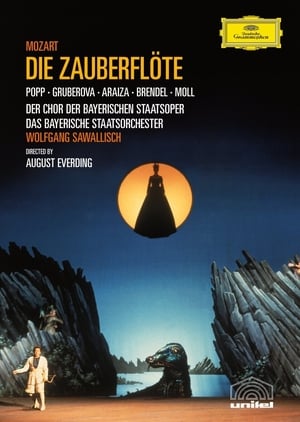 0.0
0.0The Magic Flute(de)
The Queen of the Night enlists a handsome prince named Tamino to rescue her beautiful kidnapped daughter, Princess Pamina. Aided by the lovelorn bird hunter Papageno and a magical flute that holds the power to change the hearts of men, young Tamino embarks on a quest for true love, leading to the evil Sarastro's temple where Pamina is held captive.
 6.5
6.5La Traviata(en)
La traviata (Italian: [la traˈviaːta], "The Fallen Woman"[1][2]) is an opera in three acts by Giuseppe Verdi set to an Italian libretto by Francesco Maria Piave. It is based on La dame aux Camélias (1852), a play adapted from the novel by Alexandre Dumas, fils. The opera was originally entitled Violetta, after the main character. It was first performed on 6 March 1853 at the La Fenice opera house in Venice. Piave and Verdi wanted to follow Dumas in giving the opera a contemporary setting, but the authorities at La Fenice insisted that it be set in the past, "c. 1700". It was not until the 1880s that the composer and librettist's original wishes were carried out and "realistic" productions were staged.[3]
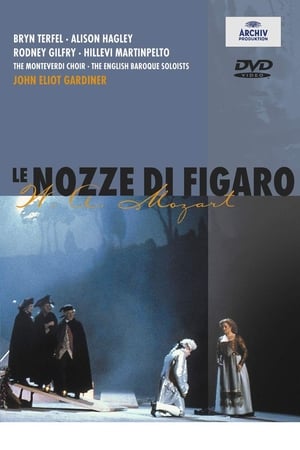 10.0
10.0The Marriage of Figaro(it)
This is a good video of "Figaro", but there are a couple of better ones available. The Bohm and the Pappano are better still due to the female members of the casts. The reason for buying this one is the "Figaro", Bryn Terfel. No one can top him today in that role. John Eliot Gardiner also stands out. Many of us have voiced their opinion that If the Metropolitan Opera would release it's 1998 version, that would be the one to get.
 0.0
0.0Puccini: Manon Lescaut(it)
All the throbbing eroticism—and ultimate heartbreak—of Puccini’s youthful score is unleashed by James Levine and his top-flight cast. Plácido Domingo is Des Grieux, the handsome, headstrong young aristocrat who falls head over heels for the enticing, impetuous Manon Lescaut (Renata Scotto). Manon returns his love, but her obsession with luxury ruins them both. Gian Carlo Menotti’s opulent production, with sets and costumes by Desmond Heeley, superbly captures the colorful world of 18th century France.
 6.8
6.8Così fan tutte(it)
Who loves whom in Così fan tutte, Mozart’s and Da Ponte’s cruelly comic reflection on desire, fidelity and betrayal? Or have the confusions to which the main characters subject one another ensured that in spite of the heartfelt love duets and superficially fleetfooted comedy nothing will work any longer and that a sense of emotional erosion has replaced true feelings? Così fan tutte is a timeless work full of questions that affect us all. The Academy Award-winning director Michael Haneke once said that he was merely being precise and did not want to distort reality. In only his second opera production after Don Giovanni in 2006, he presents what ARTE described as a “disillusioned vision of love in an ice-cold, realistic interpretation”.
 7.0
7.0Aida - Arena di Verona(it)
The grand scale and magnificent acoustics of the Roman arena in Verona are ideally suited to the pageantry of Verdi's Egyptian opera, presented here in a staging that is true to the original 1913 production, framed by obelisks and sphinxes and filled with chorus and dancers. Chinese soprano Hui He has won international acclaim for her portrayal of the eponymous slave girl whose forbidden love for the war hero Radamés (Marco Berti, the experienced Verdi tenor) brings death to them both.
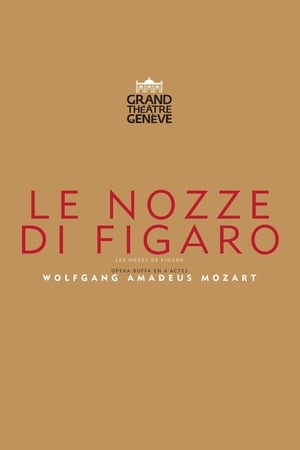 0.0
0.0The Marriage Of Figaro - Grand Théâtre de Genève(it)
The production bears the imprint of the conductor, Marko Letonja, and the director, Tobias Richter, whose understanding is ideal: both breathe a troupe spirit - specific to comedy - into this heterogeneous cast, which brings together young and old. Both give as much importance to recitatives as to arias and ensembles.
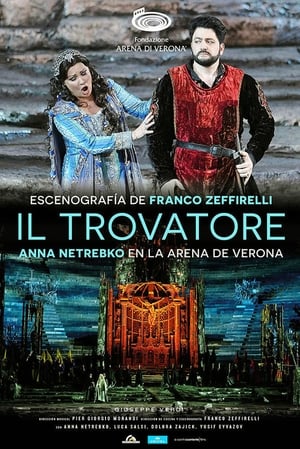 0.0
0.0Arena di Verona: Il Trovatore(it)
It's an event that draws many thousands of music lovers to one of the most beautiful cities in the world every summer: the opera season at the ancient Arena di Verona. The 2,000-year-old roman amphiteatre with its gigantic stage dimensions is one of the largest and best preserved Roman construction of its kind, and with over 22,000 seats it is undoubtedly one of the most spectacular open-air venues of the world! The revered master of opera Franco Zeffirelli, who died shortly before the premiere of Il Trovatore, created a legendary scenery with groups of giant sized armoured knights, a fortress turning into a luminous cathedral, an enormous choir, horses, breathtaking fights: “his perhaps best arena production” (Opernglas). It brings Anna Netrebko to the Arena of Verona where she is giving her much-anticipated debut in one of Giuseppe Verdi’s most popular operas.
 8.0
8.0Amadeus(en)
Disciplined Italian composer Antonio Salieri becomes consumed by jealousy and resentment towards the hedonistic and remarkably talented young Viennese composer Wolfgang Amadeus Mozart.
Lady Macbeth of Mtsensk(ru)
A young woman, married to a wealthy man, but miserably lonely; trapped within a world ruled with an iron fist. Katerina is driven by a lust for life and for love. Her husband, though, is impotent; her father-in-law a tyrant. No wonder, then, that she longs to free herself from this yoke. When Sergei starts work on the family estate, she sees in him a chance for salvation. However, their subsequent affair marks the beginning of a descent into crime.
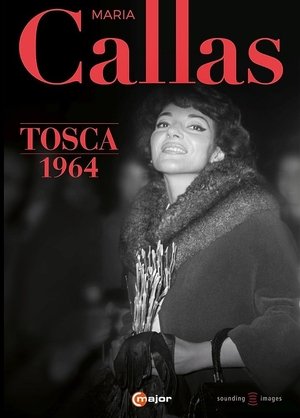 0.0
0.0Maria Callas Sings Tosca, Act II(en)
At the beginning of 1964, the music world experiences something completely unexpected. Maria Callas returns to the opera stage as the prima donna. Her “Tosca” at the Royal Opera House becomes a sensation. Maria Callas wants to show everyone once again that she deserves the title of “prima donna assoluta.” On the condition that star director Franco Zeffirelli take over the direction, the exceptional singer agrees to sing the role of Tosca. The BBC recorded the 2nd act of the opera for television. It is one of the most dramatic acts in opera history: in order to free the painter Cavaradossi from the hands of torturers, Tosca ends up murdering the police chief Scarpia. The film footage is one of the rare opportunities to see Maria Callas in an opera performance and to experience her highly emotional performance art and vocal abilities...
